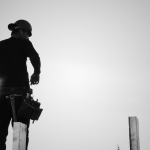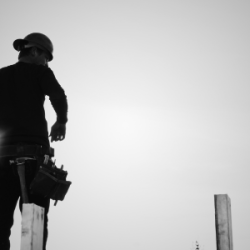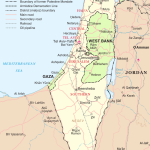
In our reading this week, the Sabbath had become an excuse to object to Jesus’ justice and liberation work. The Sabbath had become an obstacle to justice and liberation, not a conduit for achieving it. Mark’s gospel even tells a story about how folks were waiting for Sabbath to end so they could come to Jesus for healing and liberation:
That evening after sunset the people brought to Jesus all the sick and demon-possessed. (Mark 1:32)
Welcome Readers! Please subscribe to Social Jesus Here.
This is Part 3 of Christianity, Liberation and Justice
(Read this series from its beginning here.)
This is a history often repeated: something that was originally intended to be life-giving evolves over time into a death-dealing tool oppressors use to keep oppressed people in their places, denying them justice, and obstructing their liberation.
Can you think of other things that have followed this same evolutionary path? I love that this week’s reading shows Jesus liberating a woman in an act of transgression against the oppressive norms of his own context. He values the woman’s liberation as paramount. It reminds me of a passage in Peter’s epistle:
Above all, love each other. (1 Peter 4:8)
Above all.
Provocative Black intellectual and philosophy professor at Union Theological Seminary Dr. Cornel West has often said, “Justice is what love looks like in public.” In situations where there’s a scale of competing values, we must esteem how we choose to exercise justice (the public expression of love) above all else.
Our reading this week is about the tension between a person’s liberation and the way a religious institution (the Sabbath) was interpreted to oppose that liberation. The Christian faith tradition also has a long history of using its interpretations of our sacred texts to stand in the way of people’s liberation from injustice. Christianity has always had a dual witness regarding oppression: some advancing it, some fighting it. From the first generation in Acts to today. Some Christians have, Bibles in their hand, opposed the abolition of slavery here in the U.S., or women’s liberation from patriarchy, and the LGBTQ community’s work toward a more equitable society. Liberation and justice are deeply intertwined concepts, each depending on the other to be fully realized. Liberation speaks to the process of freeing individuals and communities from systems of oppression—whether political, economic, racial, gender-based, or religious. Justice, meanwhile, ensures that this freedom is not only achieved but sustained through structures that affirm everyone’s dignity and rights.
Historically, liberation movements have risen in response to injustice. I’m thinking of the Civil Rights Movement, Indigenous resistance to colonialism, the fight for women’s rights, and more. Each of these efforts began with a deep yearning for freedom but ultimately sought a more just society—one in which the systems that produced inequality were dismantled and replaced with equitable alternatives.
Justice is not simply the punishment of wrongdoing; it is the active creation of conditions where wrongs are less likely to occur. It involves redistribution of resources, access to education and healthcare, protection of rights, and the amplification of marginalized voices. Justice requires us to confront power and privilege, especially when they are used to exclude or dehumanize.
Liberation without justice can be fleeting. If a people are freed from one form of domination only to be subjected to another, their liberation is sham. Similarly, justice without liberation is a lie. You cannot have true justice while people remain trapped in systems that deny their full humanity.
Spiritual and philosophical traditions around the world affirm the essential link between liberation and justice, Christianity with its complicated oppressive history among them. The call to “let the oppressed go free” is not merely a metaphor; it is a summons to act in solidarity with the poor and the excluded. Our gospel must unequivocally state that justice is love made public and embodied in social, economic, and political transformation.
True liberation and justice require more than empathy. They demand action. They challenge us to listen deeply, to learn from those on the margins, and to use our resources and influence in ways that help us all reimagine a better world. It is not enough to hope or pray for a just society; we must build it, piece by piece, policy by policy, relationship by relationship.
In this sense, liberation and justice are ongoing journeys. They are the work of communities committed to healing, truth-telling, and the shared belief that another world is possible and a just, compassionate world that is a safe home for all is worth fighting for.
Are you receiving all of RHM’s free resources each week?
Begin each day being inspired toward love, compassion, justice and action. Free.
Sign up at HERE.














